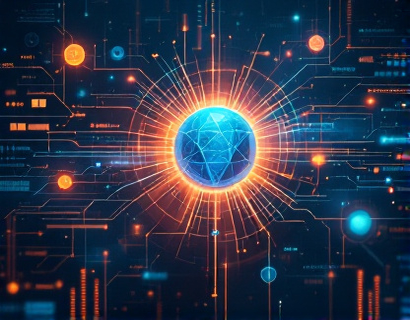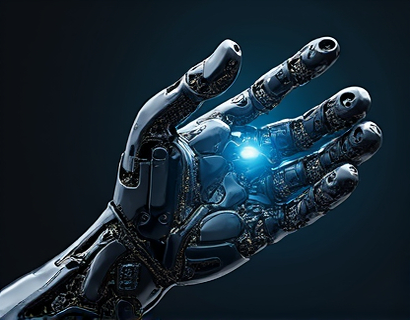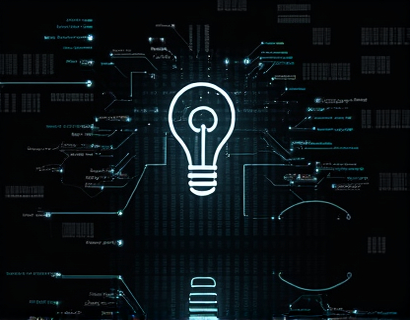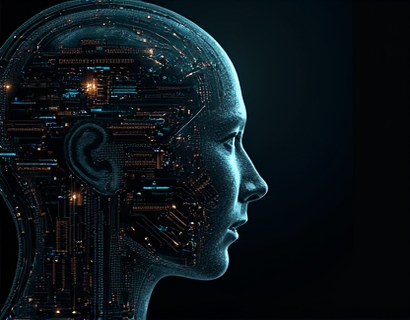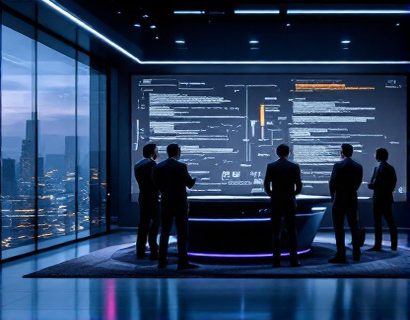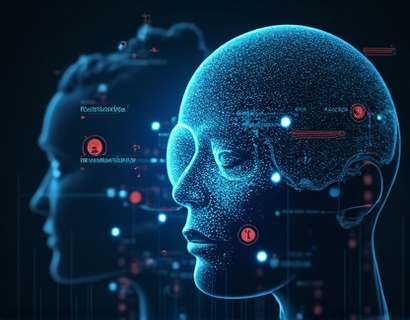AI-Driven Conflict Resolution: Navigating Adversarial Situations with Intelligent Chat Solutions
In an increasingly complex world, conflicts and adversarial situations are inevitable, both in personal and professional contexts. The traditional methods of resolving such issues often fall short, leading to prolonged disputes and suboptimal outcomes. This is where the power of advanced artificial intelligence (AI) comes into play, offering a revolutionary approach to conflict resolution through intelligent chat solutions. These AI-driven platforms provide personalized strategies and insights, empowering individuals to navigate and resolve conflicts effectively.
The Rise of AI in Conflict Resolution
The integration of AI in conflict resolution is a relatively new yet rapidly growing field. Traditional methods such as mediation, arbitration, and negotiation have been the cornerstone of resolving disputes for centuries. However, these methods often require human intervention, which can be biased, time-consuming, and emotionally draining. AI-driven chat solutions bridge this gap by offering a neutral, efficient, and data-driven approach to conflict resolution. These platforms use machine learning algorithms to analyze vast amounts of data, identify patterns, and provide tailored recommendations to users.
How AI Chat Solutions Work
AI chat solutions for conflict resolution operate on a combination of natural language processing (NLP) and machine learning. When a user engages with the platform, they are presented with a conversational interface that mimics human-like dialogue. The AI listens to the user's concerns, analyzes the context, and responds with relevant insights and potential solutions. This process involves several key steps:
- Data Collection: The AI gathers information from the user's input, including the nature of the conflict, the parties involved, and any relevant background details.
- Analysis: Using NLP, the AI processes the text to understand the emotional tone, key issues, and underlying concerns.
- Pattern Recognition: The AI leverages machine learning algorithms to identify similar conflict scenarios from its database and extract effective resolution strategies.
- Personalized Recommendations: Based on the analysis, the AI provides customized advice, suggesting potential solutions, negotiation tactics, and communication strategies.
Personalized Strategies for Effective Problem-Solving
One of the most significant advantages of AI-driven conflict resolution is its ability to offer personalized strategies. Each conflict is unique, and what works for one situation may not work for another. AI chat solutions take this into account by considering the specific context and dynamics of the user's situation. For instance, in a professional dispute, the AI might suggest a formal mediation approach, while in a personal relationship issue, it might recommend a more empathetic and emotional approach. This tailored advice helps users address the root causes of the conflict more effectively.
Enhancing Communication Skills
Effective communication is a cornerstone of conflict resolution. AI chat solutions not only provide strategies but also help users enhance their communication skills. Through interactive dialogues, users can practice assertive communication, active listening, and empathy. The AI can offer real-time feedback on the user's communication style, suggesting improvements and alternative phrases to use. This interactive learning process helps users become more adept at handling difficult conversations and resolving conflicts amicably.
Case Studies: Real-World Applications
To illustrate the practical applications of AI-driven conflict resolution, consider a few real-world scenarios:
Personal Relationships
A couple is experiencing frequent arguments over household responsibilities. Using an AI chat solution, they input their concerns and the AI analyzes the situation. It identifies patterns of miscommunication and suggests a structured approach to discuss and divide responsibilities fairly. The AI might recommend setting a specific time to talk about this issue, using "I" statements to express feelings, and creating a shared checklist to ensure both partners are on the same page. This structured approach helps the couple resolve their differences more effectively and strengthen their relationship.
Professional Disputes
In a corporate setting, a team is facing a deadlock over project direction. The team leader turns to an AI chat solution for guidance. The AI analyzes the team's communication history and identifies key points of contention. It proposes a facilitated brainstorming session where each team member can voice their ideas without interruption. The AI also suggests using a decision-making framework to evaluate and prioritize the ideas based on project goals and feasibility. This method not only resolves the immediate dispute but also improves the team's collaborative process.
Benefits of AI-Driven Conflict Resolution
The adoption of AI-driven chat solutions for conflict resolution offers numerous benefits:
Efficiency
AI can process and resolve conflicts much faster than traditional methods, providing immediate insights and recommendations. This speed is particularly valuable in urgent situations where timely resolution is critical.
Neutrality
Unlike human mediators who may have biases, AI remains completely neutral, ensuring fair and unbiased advice. This impartiality helps build trust and encourages users to engage more openly.
Accessibility
AI chat solutions are accessible 24/7, allowing users to seek help at any time without the need for appointments or waiting periods. This accessibility is especially beneficial for those in remote areas or with limited access to traditional conflict resolution services.
Cost-Effectiveness
Using AI for conflict resolution can be more cost-effective compared to hiring professional mediators or lawyers. The reduced costs make high-quality conflict resolution accessible to a broader range of individuals and organizations.
Challenges and Considerations
While AI-driven conflict resolution offers many advantages, it is not without its challenges and considerations:
Limitations of AI
AI, despite its advanced capabilities, may not fully understand the nuances of human emotions and complex social dynamics. In highly sensitive or emotionally charged situations, human intervention may still be necessary to provide the empathetic support and deep emotional insight that AI cannot fully replicate.
Data Privacy
Users must be assured that their personal and sensitive information is handled with the highest level of security and privacy. AI chat solutions must comply with data protection regulations and implement robust security measures to protect user data.
User Trust
Building trust in AI-driven solutions is crucial. Users need to feel confident that the advice provided is reliable and based on sound reasoning. Transparency in the AI's decision-making process and clear communication about its limitations can help foster this trust.
Future Prospects
The future of AI-driven conflict resolution is promising, with ongoing advancements in AI technology and increasing user adoption. Here are some potential developments:
Integration with Other Technologies
Combining AI with other technologies such as virtual reality (VR) and augmented reality (AR) can create immersive conflict resolution experiences. For example, VR can simulate real-life scenarios, allowing users to practice conflict resolution skills in a controlled environment.
Enhanced Personalization
As AI algorithms become more sophisticated, the personalization of conflict resolution strategies will improve. AI can incorporate more data points, including user behavior, historical interactions, and even physiological signals to provide even more tailored advice.
Broader Application
The application of AI-driven conflict resolution will extend beyond personal and professional settings to areas such as international diplomacy, community mediation, and even online communities. The versatility of AI makes it a powerful tool for addressing conflicts across various domains.
Conclusion
AI-driven conflict resolution represents a significant leap forward in how we handle adversarial situations. By leveraging advanced AI, users can access personalized, efficient, and effective solutions to their conflicts. While there are challenges to overcome, the potential benefits are substantial, making this technology a valuable asset in our increasingly complex world. As AI continues to evolve, its role in conflict resolution will only become more prominent, offering hope for more harmonious and productive interactions.




